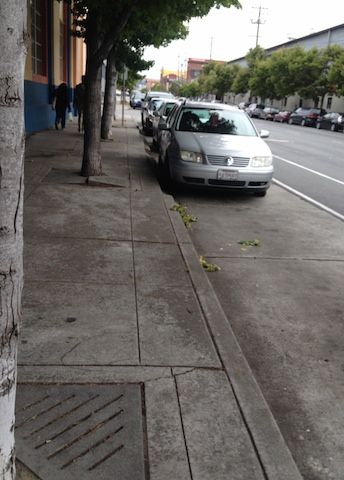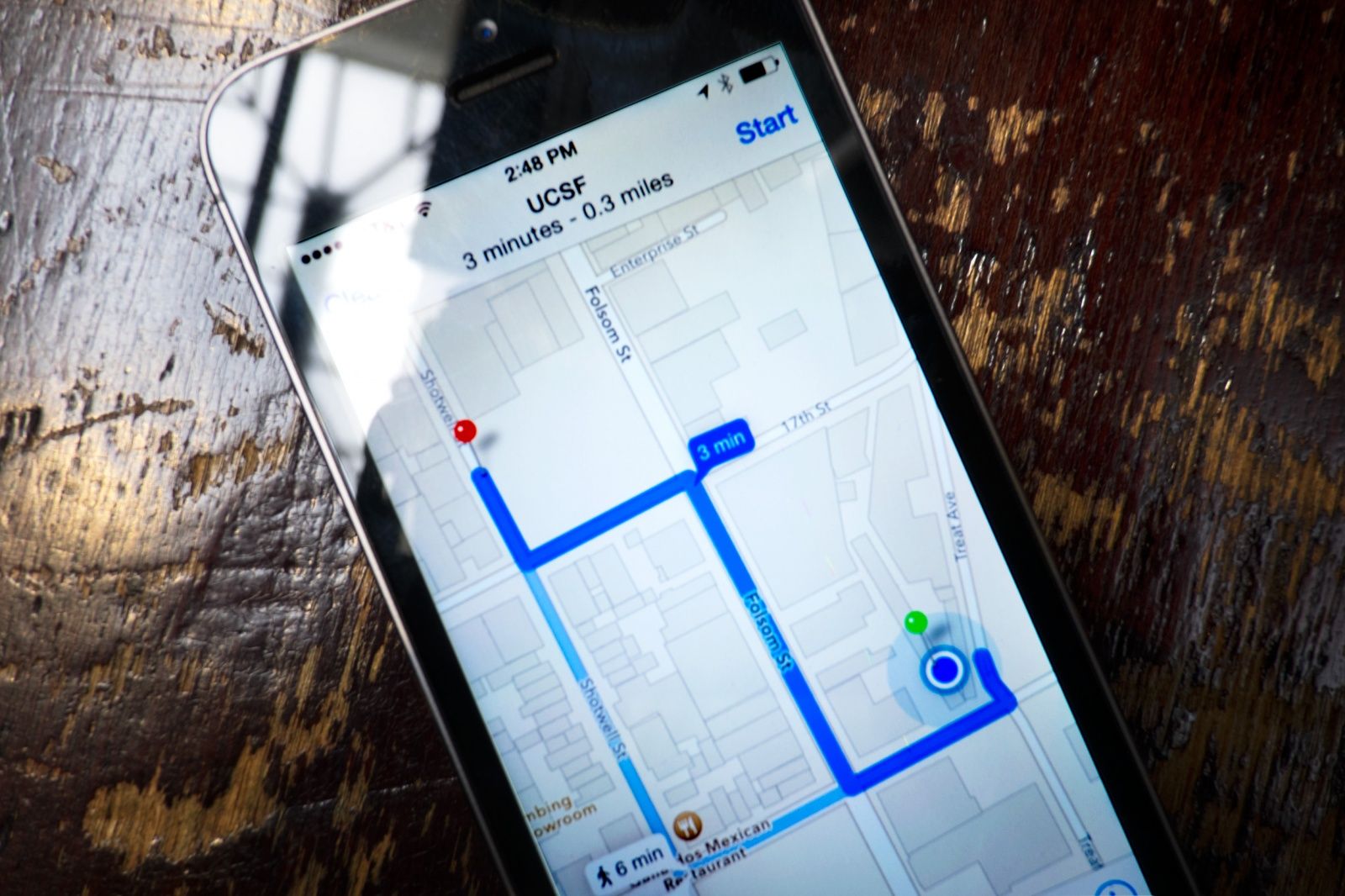SAN FRANCISCO — A parking app that reliably helps find open spots in this congested city was coded on a turn-of-the-century tugboat in Sausalito.
The Terrapin served David LaBua as a coding den for VoicePark, a free app that uses sensors to monitor parking spots. It’s the only one we’ve tested to date that guided us to viable public spots on the busy streets of San Francisco.
“Parking is probably San Francisco’s biggest stressor, and writing about it has been very therapeutic for me,” says LaBua, who holds a master of science in psychology. “I had no intention of getting into the app game, but there was a real need for it.”
LaBua became a self-taught expert on parking in the town known for its hills, restaurants and arbitrary parking laws while living in the notoriously hard-to-park North Beach neighborhood. Such was his obsession that he penned a book about parking titled Finding the Sweet Spot and writes a gripping column where readers ask him for advice on their most pressing parking conundrums.
San Francisco’s parking pinch is a sign of the city’s tech-fueled growing pains. While the San Francisco Municipal Transportation Agency counts more than 442,000 free and paid parking spots, it’s evident from a map the city produced that most spots are concentrated downtown, not in tech-boom areas like the Mission, where workers often circle pointlessly searching for a spot in a neighborhood that’s part residential, part industrial.
A bunch of parking apps — including the transportation agency’s own app, which gauges availability and pricing — aim to smooth over the bumps in finding a spot. Push came to shove recently when the city attorney cracked down on parking apps based on the concept of drivers selling spots, which means the race for the best parking app is still on.
Right now, the VoicePark app monitors 18,000 parking spots in eight pilot areas with about 11,000 of those spots on the street. Each spot knows its built-in rules (street cleaning times, passenger loading zones) so the app will never guide you to a spot that’s not legal. “Ideally, someday, it’ll drive you to every spot in the city,” LaBua says.

In one trial run, it guided us to four open spots near the parking-challenged Cult of Mac offices in the Mission. After putting in our address and choosing the “street” parking option (the app will also guide you to garages), VoicePark pinned a nearby spot and then voice directions guided us in. Of those spots, one was a great find (no time limit), two had one-hour limits and the fourth was a two-hour spot too short for our hulking truck. On another afternoon, we found three one-hour spots and a pair of two-hour slots open on the street, a track record unmatched in our previous app road tests.
VoicePark wasn’t always so spot-on, LaBua admits. Two earlier versions of the app hinged on sensors from other suppliers that weren’t as reliable as the ones they’re using now from SmartParking, an outfit entrusted with a similar sensor-parking scheme in London. “We had 30 percent false positives when we launched, and the assumption we made was that the hardware was working, but that was a bad assumption,” he says.
Working on the app aboard the Terrapin helped the developers maintain perspective on where the app was going. The current sensors use infrared and are refreshed every two seconds, making them accurate and reliable with the system runtime at 99 percent. They’re housed in a cup in the ground, so they can’t be swiped or damaged by dogs or garden-variety hooligans. If something goes awry, LaBua points out that the sensors are self-diagnosing — if there’s a battery issue or gum stuck on the sensor, it shoots off an email to technical staff.
LaBua, like many people here, keeps his transport options open, switching from bike to ferry to car as the need arises. He drives a boxy 1988 BMW M5 without a working radio and, by his own definition, he’s “not a huge car guy.” His Beemer’s killer feature? An early on-board fuel-efficiency monitor that LaBua, who likes to crunch numbers for the bigger picture, loves. (VoicePark’s website is full of factoids like the app “reduces carbon emissions by preventing 250,000 pounds of CO2 from being released into the atmosphere every hour.”)
He’s also passionate about knowing every square parkable inch of the city.
“I’ve compiled a list of all the little parking oases,” he says. “There are a whole bunch of golden spots that fall outside the rules.”
Outside the rules is a good place to be in a city rolling in $95 million yearly in parking fines — that works out to more than one citation each for the city’s 800,000 residents. The city targets drivers for 88 parking peccadilloes, ranging from improperly curbed wheels to lodging in a spot reserved for car-sharing.
LaBua got so good at grokking the system that he says the transportation agency had to plant a sign specifically to curb his neighborhood parking habit. “Even then, since I knew that new signs aren’t enforceable for three days, I left it there until the last minute.”
He’s also savvy to where the rubber meets the road for tickets or towing. When television crews call to talk parking problems, he takes them to Embarcadero and Broadway, to show them what happens when the parking lane becomes a commuter lane. “You definitely don’t want to park after 3:05 p.m. — the grace period — when enforcement officer takes off and four others follow right behind him,” he says, adding that hundreds of cars get towed every day in the city’s commuter zones.
With VoicePark on the ground and running, LaBua hopes the city will pick up the tab for implementing the app full scale, which could have some positive and negative outcomes for drivers.
“People say I’ve moved to the dark side,” LaBua says with a laugh, explaining that the “dark side” is increased enforcement efficiency for tickets. He did an afternoon ride-along with an enforcer and found driving around eight-by-eight blocks checking for violations “exhausting.” Parking control officers could probably ticket a lot more “but they’re just tired, probably,” he says.
“I predict that revenues from tickets would skyrocket initially, and that part will suck,” he says, but it comes back to the fact that there are rules: This is a two-hour spot, this is for loading and unloading only, the street gets cleaned here on Wednesday mornings, etc.
“My conscience is clean — I’m not doing anything that as a society we haven’t agreed to,” LaBua says. “The tech will get people in the spots quicker and we’re taking a crack at helping the environment.”


